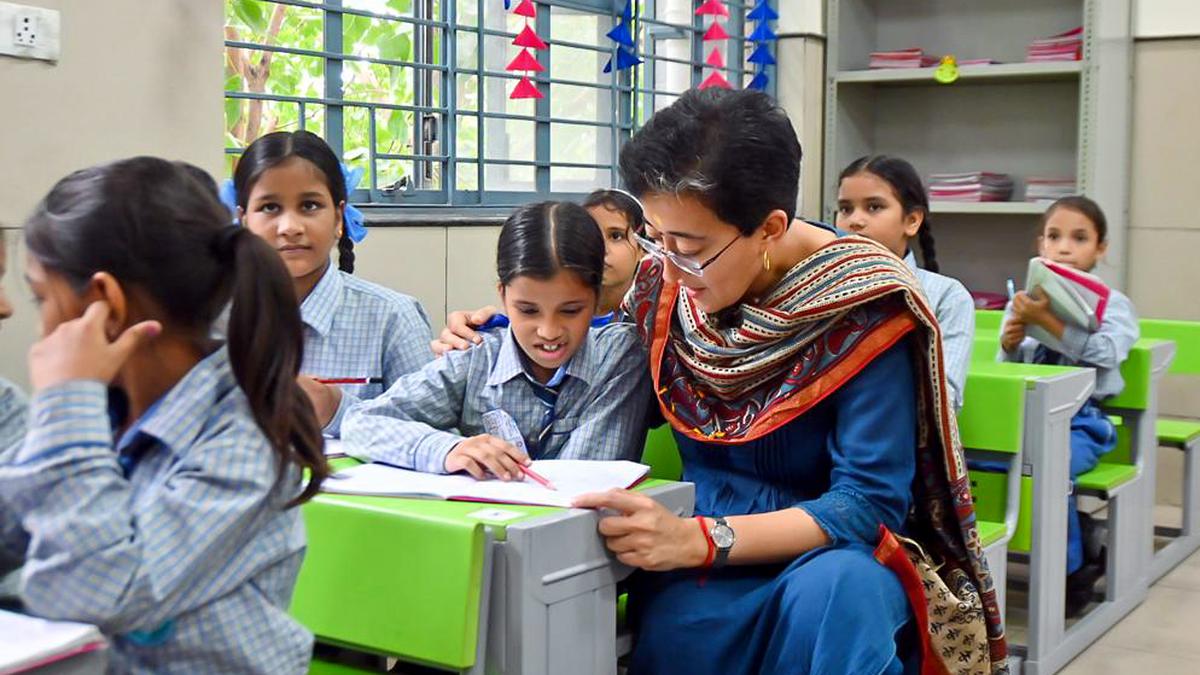
AAP leader Atishi dubs Women’s Reservation Bill as Mahila Bewakoof Banao Bill
The Hindu
AAP's Atishi alleges BJP's Women's Reservation Bill is 'Mahila Bewakoof Banao' bill. Seats reserved for women will be rotated after each delimitation exercise, but won't be implemented ahead of 2024 Lok Sabha polls. AAP demands 50% reservation in all govt jobs for women. Raghav Chadha demands immediate implementation of reservation without further delay.
Senior Aam Aadmi Party (AAP) leader Atishi on September 19 alleged that the Women's Reservation Bill is a Bill to befool women ahead of the 2024 Lok Sabha polls.
The government on Tuesday introduced a constitutional amendment Bill to reserve one-third of seats in the Lok Sabha and State Assemblies for women, reviving a Bill pending for 27 years for want of consensus among parties.
Addressing a press conference, Ms. Atishi alleged that the BJP is not interested in the well-being and welfare of women. "A closer reading of the provisions of the Bill shows that it is 'Mahila Bewakoof Banao' Bill," she said.
Explained | On reservation for women in politics
According to the Bill, the reservation will come into effect after a delimitation exercise is undertaken and will continue for 15 years. Seats reserved for women will be rotated after each delimitation exercise.
"Why have the provisions of delimitation and census been included? This means that women reservation won't be implemented ahead of the 2024 Lok Sabha polls," said Ms. Atishi, a Minister in the Arvind Kejriwal Government in Delhi.
"We demand that the provisions of delimitation and census be done away with and the women's reservation be implemented for the 2024 Lok Sabha polls," she said.

“Writing, in general, is a very solitary process,” says Yauvanika Chopra, Associate Director at The New India Foundation (NIF), which, earlier this year, announced the 12th edition of its NIF Book Fellowships for research and scholarship about Indian history after Independence. While authors, in general, are built for it, it can still get very lonely, says Chopra, pointing out that the fellowship’s community support is as valuable as the monetary benefits it offers. “There is a solid community of NIF fellows, trustees, language experts, jury members, all of whom are incredibly competent,” she says. “They really help make authors feel supported from manuscript to publication, so you never feel like you’re struggling through isolation.”

Several principals of government and private schools in Delhi on Tuesday said the Directorate of Education (DoE) circular from a day earlier, directing schools to conduct classes in ‘hybrid’ mode, had caused confusion regarding day-to-day operations as they did not know how many students would return to school from Wednesday and how would teachers instruct in two modes — online and in person — at once. The DoE circular on Monday had also stated that the option to “exercise online mode of education, wherever available, shall vest with the students and their guardians”. Several schoolteachers also expressed confusion regarding the DoE order. A government schoolteacher said he was unsure of how to cope with the resumption of physical classes, given that the order directing government offices to ensure that 50% of the employees work from home is still in place. On Monday, the Commission for Air Quality Management in the National Capital Region and Adjoining Areas (CAQM) had, on the orders of the Supreme Court, directed schools in Delhi-NCR to shift classes to the hybrid mode, following which the DoE had issued the circular. The court had urged the Centre’s pollution watchdog to consider restarting physical classes due to many students missing out on the mid-day meals and lacking the necessary means to attend classes online. The CAQM had, on November 20, asked schools in Delhi-NCR to shift to the online mode of teaching.









